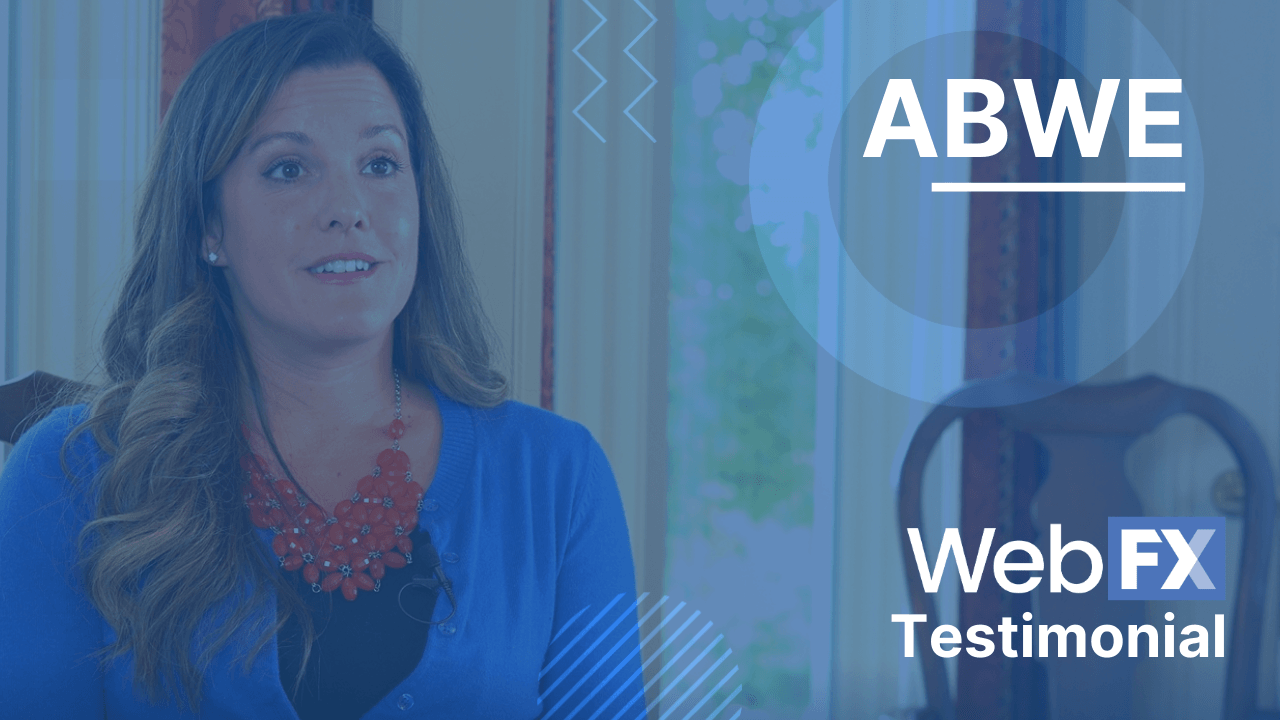- Home
- Industries
- Local Consumer Services
- Churches
- SEO for Churches: Spread the Word About Your Church Online
SEO for Churches: Spread the Word About Your Church Online
Help people in your area find your congregation online with search engine optimization (SEO) for churches. Don’t know where to start? This mini guide provides impactful tips for your community.
-
insights from 149,000+ hours of nonprofit marketing experience
Key takeaways
- Church SEO is a strategy that helps people discover your congregation when they search online.
- Local SEO can improve your church’s visibility when people in your area perform “churches near me” searches.
- Creating relevant and useful content for potential churchgoers boosts your discoverability online.
People search the Internet to find churches near them. That means you must meet your audience where they’re looking — online.
Church SEO is one of the best ways to improve your church’s discoverability on the Internet. It involves multiple strategies to help people find, contact, and visit your congregation.
Need a team of experts help you with SEO for churches? Call us at 888-601-5359 or contact us online to speak with a strategist about our SEO services!
What is SEO for churches?
SEO for churches is a digital marketing strategy that helps people discover your congregation when they do an online search. It comprises various tactics — from publishing useful content for your audience to ensuring your church name, address, and phone number (NAP) are correct on Google Maps and other local listings.
This means SEO shows your church to anyone in your area looking for religiously affiliated services, whether you offer weddings, marriage counseling, food bank support, vacation Bible school, scholarships, funeral processions, and more.

What are the major elements of church SEO?
SEO can deliver some exceptional results, but it also requires a lot of effort on your part, as it’s an ongoing strategy. Let’s look at the major elements of SEO for churches:
1. Local SEO
Local SEO refers to efforts focused on improving your church’s visibility to people in your area. It includes the following:
- Optimizing your Google Business Profile listing
- Building local citations
- Ensuring NAP consistency
- Incorporating local keywords and relevant local content into your website
2. On-page SEO
On-page SEO refers to anything you control on your church’s website. It comprises several tactics, including the following:
- Creating keyword-rich URLs, page titles, and headings
- Adding alt tags to images on your website
- Improving your site’s navigation and usability
- Using a responsive design for your website
- Updating content on a regular basis
3. Off-page SEO
Off-page SEO refers to improvements outside your church’s website. Off-page SEO includes:
- Link building
- Social media
- Directory submissions
- Reputation management
4. Technical SEO
Technical SEO refers to optimizations that make it easy for site visitors and crawlers to navigate and use your website. It involves the following:
- Building a sitemap
- Having a mobile-responsive website
- Optimizing your site speed
- Ensuring your website is secure
7 SEO tips for churches
SEO doesn’t happen overnight. It takes effort, persistence, and knowledge to put together a strong SEO strategy for your church. Here are seven ways you can get started!
SEO tips for churches
1. Use local SEO strategies
Local SEO helps people find you when they search for churches in your area. You can start by creating listings on major directories like:
- Google Business Profile
- Bing Places for Business
- Yelp
Fill out your church’s:
- Location
- Phone number
- Operating hours
- Service times
- Primary category
- Programs
- Photos of your congregation
Then, your information will appear in relevant searches for people in your area. Best of all, it’s completely free!
2. Optimize your Google Business Profile
When people use search terms like “churches near me” or “churches in [city name],” you want them to find your congregation in the local pack.
Once you’ve added details about your church, optimize your profile to provide helpful details to potential churchgoers. Here are some optimization tips:
- Encourage and manage reviews: Allow your current churchgoers to leave a review of your congregation. Respond to both positive and negative reviews, and use their feedback to improve. Make sure to report fake reviews.
- Use the Q&A feature: This feature lets users ask questions about your church in public.
- Add events: You can add your congregation’s event in your Google Business Profile. Type in your event title, start and end dates, time, description, and action button to let searchers know about your church’s upcoming event.
3. Research and incorporate keywords
Successful SEO campaigns begin with keyword research. Keyword research is the process of identifying words and phrases people use to find your church online.
Then, you add those keywords in to your pages in their titles, meta descriptions, headings, and body copy. Using these keywords tells Google what your page is about, which helps Google read, understand, and recommend your page more easily.
The easier you make it for Google to understand your page, the better you’ll rank in the long run. Tools like KeywordsFX can help you get started!
4. Invest in content marketing
It’s also a good idea to invest in content marketing for your congregation and create new content. Search engines and website visitors love fresh, quality content, and it keeps them coming back.
You can create content about the following:
- Your services
- Special programs
- Upcoming events
You could write longer, more informational articles about in-depth topics like your denomination’s doctrine, how your church helps the community, and the differences between your faith and others.
Also, if your church doesn’t already have a blog, you can create one to discuss your previous services, thoughts on the community, and more. Google likes websites that regularly update, which is what a blog provides.
Depending on your budget and resources, you could also publish video content that gives potential visitors an inside look at your church.
Last, many churches embrace podcasting to publish the services they record — especially sermons. This helps your site’s SEO power, and you also get a chance to appeal to an entirely new audience!
No matter what kind of content you create, it’s important to write for your audience — not for search engines.
This means that even when you find the perfect keyword, you should write naturally and avoid over-stuffing that keyword into your text. Google’s goal is to serve their users the most informative content possible.
Search engines penalize websites that use keywords unnaturally. With that in mind, it’s in your best interest to write as if you’re having a conversation with the reader.
5. Mind your website’s HTML and technical SEO
HTML is another important part of SEO that affects how Google interprets and ranks your site.
Every website uses HTML code. It’s the gold standard for developing websites.
It also includes the following SEO elements, which are some of the most important components of your code:
- Title tags: Title tags tell users and search engines what your page is about. They’re also the text that show up in the blue links in Google search results. Title tags work best when you include your keyword in them so it’s immediately clear what someone can expect from clicking on your page in search results.
- Meta descriptions: Meta descriptions are the gray text that shows up beneath your title tag in search results. Meta descriptions give more information on what your page is about with a little more detail.
- Alt tags: Alt tags let you add a few words of text to each multimedia element you use on a page. They improve your website’s accessibility.

6. Build links
Link building means earning links to your website from others, which are called “backlinks.”
Backlinks are the #1 ranking factor in Google’s eyes because they act as votes of confidence from other sites to yours. Google also weighs links differently depending on the site.
So a link from a well-known news outlet will often carry more credibility than a link from someone’s personal blog.
You can earn backlinks to your site by finding sites that discuss similar topics to your church. Then, you can email someone who contributes to that site, give them a link to your content, and ask them to link to you the next time they write.
Then, when they link to you, you’ll get a new link that also funnels traffic to your site from theirs.
This works especially well when you offer information that others can’t find anywhere online. So when you write a blog post, record a video, or design an infographic, it’s fair game to send to other websites!
7. Use analytics to evaluate results
Like all marketing strategies, it’s important to review the results of your SEO campaign to determine what you’re doing well and what you could improve. You can do that with Google Analytics.
Setting up Google Analytics on your church’s website allows you to see:
- Website traffic
- Time on page
- How someone got to your site
For example, do people visit your site after finding your church in search results? Do they come from social media? Another website? You can answer all of those questions with one click when you have Google Analytics set up.
You can also look at the most-visited pages on your site to understand what content resonates best with website visitors. With that knowledge, you can create similar pages that promise to attract even more people to your site.
You can even set up tracking code to monitor where people sign up for your email newsletter, when they donate to your church, and more!
Overall, analytics let you further optimize your site and improve your SEO efforts to attract even more visitors to your church.
Grow your congregation with church SEO strategies
SEO for churches can improve your congregation’s discoverability online. With an optimized website, you can attract more churchgoers to join your community.
If you need help with church SEO, consider teaming up with WebFX. We offer custom SEO plans to meet your church’s needs.
Contact us online or call us at 888-601-5359 to speak with a strategist about our SEO services!
We’re excited to hear from you!
We Drive Results for Churches
- 24 million leads generated for clients
- Dedicated account manager backed by 500+ digital experts



Table of Contents
- What is SEO for churches?
- What are the major elements of church SEO?
- 1. Local SEO
- 2. On-page SEO
- 3. Off-page SEO
- 4. Technical SEO
- 7 SEO tips for churches
- 1. Use local SEO strategies
- 2. Optimize your Google Business Profile
- 3. Research and incorporate keywords
- 4. Invest in content marketing
- 5. Mind your website’s HTML and technical SEO
- 6. Build links
- 7. Use analytics to evaluate results
- Grow your congregation with church SEO strategies
We Drive Results for Churches
- 24 million leads generated for clients
- Dedicated account manager backed by 500+ digital experts



Explore our B2C studies
Read our case studies for a more in-depth look at our results.
Solving key challenges for churches
Our website isn’t driving enough traffic
When consumers search for your services in their local area, your website needs to be one of the first results so you can drive more qualified traffic to your site. Make that goal a reality with our top-tier SEO and web design services.

We’re not attracting new customers
Having trouble boosting your online visibility so you can keep attracting new customers? Our award-winning marketing services get your business in front of the right people in your local area.

We’re struggling to sell our new services
When you partner with WebFX, we’ll help you get your new services in front of the people actively searching for them so you can maximize your revenue.

We aren’t retaining customers
Reduce your customer churn and implement top-tier marketing strategies that help you form long-lasting relationships with customers that turn into long-term brand loyalty.



